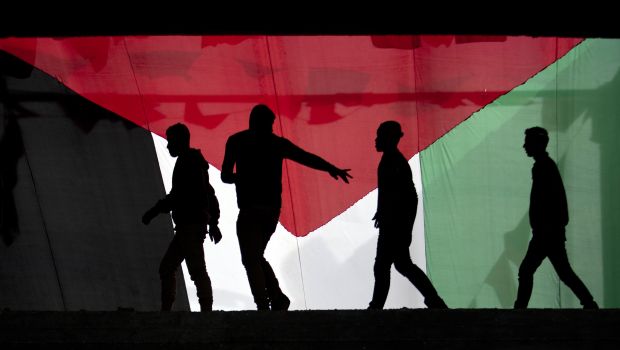Since the beginning of the new century, Arabs have demanded a permanent seat in the UN Security Council. The demand came in response to the UN’s promises of reform. The UN, as its high-ranking officials have confessed, is an organization that has become outdated and has not changed much since it was created at the end of the Second World War.
Kuwait’s permanent delegate to the UN, Mansour Al-Otaibi, voiced the Arab group’s demand for a permanent seat. He reminded everyone there that the number of Arab states that exist had grown from five in 1945 to 22 today.
The truth is, we Arabs deserve more than a seat, not because of our big number but because of our numerous problems and causes. Whether we like it or not, our issues occupy most international organizations, from the Security Council, to the General Assembly, to the Refugee Agency, to the International Court of Justice, to the Human Rights Council, to the Food and Agriculture Organization, to UNESCO and the World Health Organization.
Despite that, I wish I could hear Otaibi’s opinion on how the inter-Arab struggle over a permanent seat will be resolved, assuming the UN decides to grant a seat to us in the first place. Will the seat belong to Syria, Saudi Arabia, Qatar, Egypt, Algeria or Morocco? It’s a very important position. Saudi Arabia’s experience of rejecting the UN Security Council seat—though it was honorable and temporary—will not be repeated.
Allow me to remind you of what happened a few weeks ago in Kuwait when a dispute over the Syrian seat erupted during the Arab League summit meeting. Although the Arab League had already made up its mind and deprived Bashar Al-Assad’s regime of the seat, because he killed around a quarter of a million of his citizens and displaced five million others, the summit left the entire Syrian population without any representation—although the major topic of discussion was that of the Syrian crisis. This is because Algeria and its allies on one side and Saudi Arabia and its allies on the other argued over who has the right to represent the Syrian people. What a scandal! The Algerians succeeded in preventing the Syrians from being represented and the seat remained vacant.
Disputes are not only played out among governments but sometimes within them. For example, the Lebanese foreign minister used to express his government’s positions, but he votes against those positions and in line with Hezbollah’s agenda.
In brief, the Arab countries at the UN will not agree on anything. They won’t even agree on the Palestinian issue, as Arab delegates have always been divided into two camps according to their governments’ positions.
Despite that, I am not saying that the UN should ignore the Kuwaiti envoy’s demand. What I am saying is that we must reform global politics before we reform the UN. We know that no permanent seat will be granted to any country that’s not a superpower. Second of all, the Security Council has proven it’s like a movie theater with 15 seats for spectators—a mere room to grant legitimacy to the decisions of superpower countries which had already made up their minds anyway. For example, if the US really wanted to obtain authorization from the Security Council to topple the Assad regime, it would have managed to do that by resorting to several tactics. One of these could have been giving the Syrian opposition enough support on the ground so as to convince the Russians to accept a UN resolution that achieves a peaceful transition in the country. More importantly, if Arabs had been a coherent political bloc, this would have been reflected in their presence at the UN. In this case, their political stance of acceptance or rejection, and not the dream of a UN permanent seat, will be the matter of international consideration.
